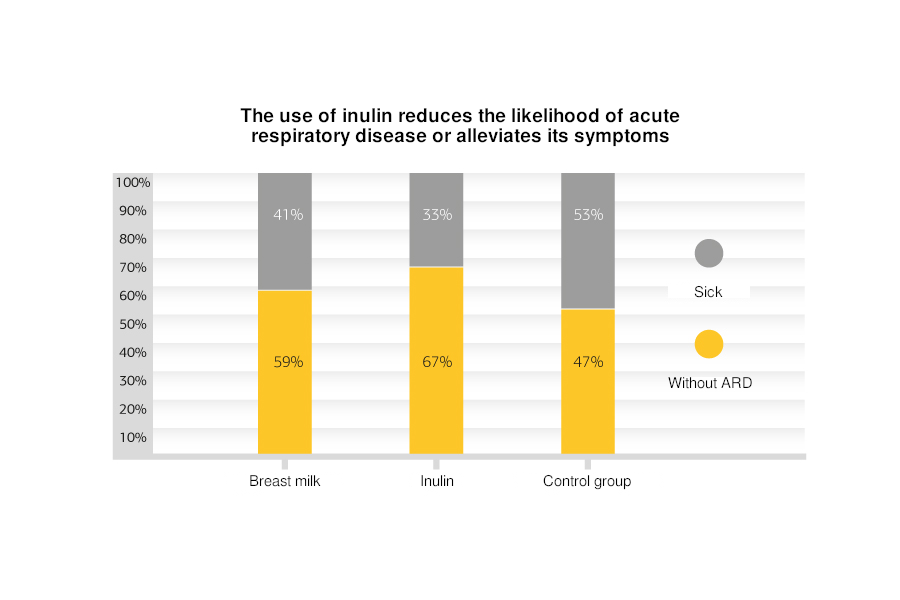Direct and indirect effects of Inulin on immunity
Since 2011 until 2014, the University of Padua compared 3 groups of children, aged 24-98 weeks, who were born by parents with allergic pathology in anamnesis at least at one child. Group No. 1 – 123 children, received only breast milk. Group No. 2 – 118 children, some were breastfed, others were artificially fed. Children in this group received Inulin. Group No. 3 (control) – 104 children, similar in composition to Group No. 2, did not receive Inulin.

As a result of the research, it became clear that:
- The number of infants with at least one episode of respiratory infection and the mean number of episodes up to 48 weeks are significantly lower in Group 2 than in Group 3.
- The number of patients with recurrent infections and the frequency of wheezing with lower infection up to 96 weeks were lower in Group 2 than in Group 3 but similar to Group 1.
- The increase in Bifidobacteria and Clostridium was noted in Group 2, which was associated with protective role against infection and reduction in manifestations of atopy in group of children, who received Inulin.
Conclusion: early administration of prebiotics protects against respiratory infections and mediates the species-specific modulation of intestinal microflora.
Giusy Ranucci, Vittoria Buccigrossi, Eleonora Borgia et al. Galacto-Oligosaccharide/Polidextrose Enriched Formula Protects against Respiratory Infections in Infants at High Risk of Atopy: A Randomized Clinical Trial. Nutrients 2018, 10, 286; doi:10.3390/nu10030286.
